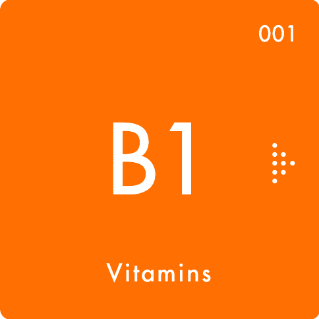
Health functions
Vitamin B1 (thiamin) contributes to the normal function of the heart, nervous system, neurological development, and the production of energy from food. Read More

Vitamin B1, also known as thiamin, is a water-soluble B vitamin that occurs in the human body as free thiamin and as various phosphorylated forms: thiamin monophosphate (TMP), thiamin diphosphate or pyrophosphate (TTP), and thiamin triphosphate (TPP). Vitamin B1 was the first vitamin identified in 1926.
Authored by Dr Peter Engel in 2010, reviewed and revised by Angelika Friedel on 29.06.17

Vitamin B1 (thiamin) contributes to the normal function of the heart, nervous system, neurological development, and the production of energy from food. Read More

Some preliminary evidence suggests that vitamin B1 (thiamin) ─ along with other micronutrients such as vitamin A and vitamins of the B complex (B2, B9, B12) ─ may protect the eyes’ lens and lower risk of getting cataracts. Read More
Things to know about Vitamin B1
Wernicke-Korsakoff syndrome is a brain disorder caused by vitamin B1 (thiamin) deficiency. Read More
The recommended dietary allowance (RDA) of vitamin B1 (thiamine) is dependent on age, gender, and other factors. Read More
National nutrition surveys in European countries provide an indication of current intake of some B vitamins. Read More
Severe vitamin B1 (thiamin) deficiency can lead to beriberi, which damages nerves in the legs and arms, damages the heart, and causes brain damage. Read More